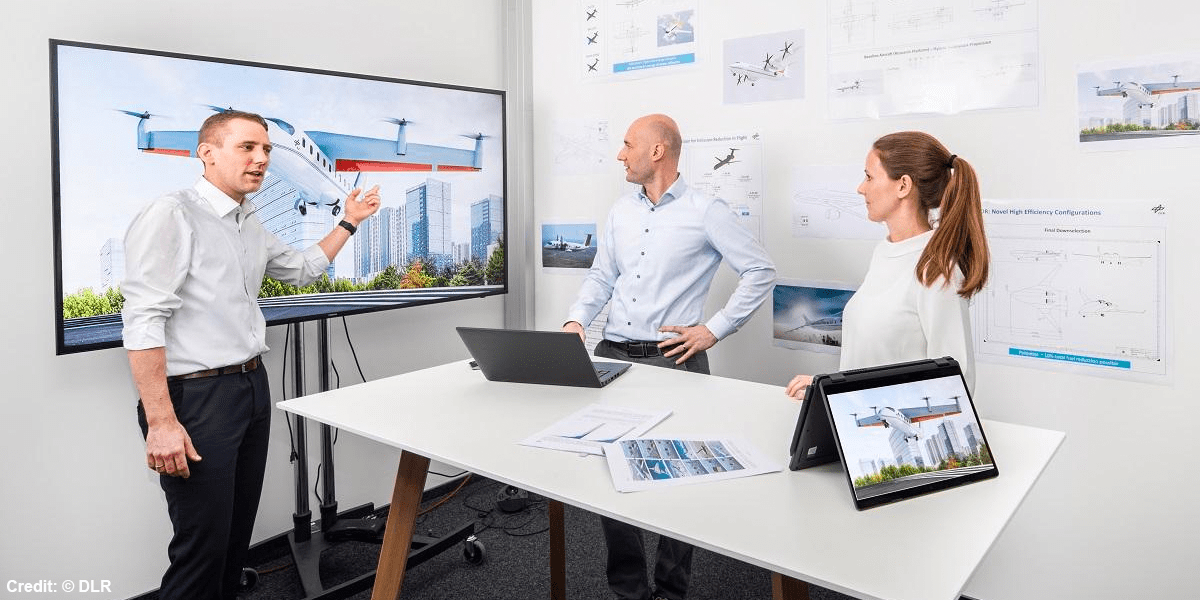EXACT: DLR researches eco-efficient aircraft
Since the beginning of this year, the German Aerospace Center (DLR) has been working on the EXACT (Exploration of Electric Aircraft Concepts and Technologies) project to develop new technology components for an eco-efficient commercial aircraft – with batteries, fuel cells and hydrogen.
The overriding goal of the four-year project is to develop the necessary technology for an aircraft with at least 70 seats and a range of 2,000 kilometres. This should be brought to operational maturity by 2040, as DLR has announced in a press release.
DLR is not only trying to find out exactly how electrical propulsion systems must be designed in order to drastically reduce emissions from air traffic or how such aircraft can be operated economically. According to their own statements, 45 scientists from 20 DLR institutes also want to investigate whether “such novel aircraft will change the aviation system, for example, airports or maintenance hangars”, but also the work of air traffic control.
To achieve the goal of the 70-seat aircraft, the institute’s scientists will first investigate different hybrid-electric drive concepts and possible aircraft configurations, how these technologies affect the infrastructure at airports and whether the hoped-for effects in terms of reducing emissions actually materialise.
“DLR has a globally unique competence for conducting such a complex study In our 45-member team, we are pooling our expertise from the various research areas,” says Johannes Hartmann from the DLR Institute of Aerospace Systems Architectures, who is leading the project. “In this way, we achieve both the necessary thematic breadth and scientific depth.”
According to Hartmann, DLR has chosen a new approach to achieve the two goals of low emissions and economic operation. In the past, according to Hartmann, aircraft “were developed primarily on the basis of cost considerations and their impact on the climate was only analysed afterwards”. “We are turning this process around for the first time and are thus choosing a revolutionary approach for our work,” said Hartmann.
In order to achieve the most sustainable results possible, DLR is going to include all kinds of propulsion. The potential of batteries, fuel cells or hydrogen-powered aircraft is being investigated with models for climate impact, noise and product and energy life cycles. In this process, the environmental impact as well as investment, operating and maintenance costs will be examined. This includes special hydrogen filling stations or the charging infrastructure for battery-powered aircraft.





0 Comments